Hot Links, Sausages, and Whether Napoleon Really Existed
Below is a miscellany of matters musical and otherwise. Feel free to share with a few friends.
For your enjoyment, here’s the program of jazz music presented at the White House on June 18, 1978. This may be the most impressive concert line-up in the genre’s long history. But there are a few notable absences, for example a certain trumpeter, in semi-retirement at the time, who must have received an invitation but decided to stay home.
Update: These performances were recorded by Voice of America. Seems like it would be worth the effort for an enterprising record label to track down the tapes and secure necessary permissions to release the music. Here’s what the Washington Post published the day after the event. (Thanks to Twitter follower @aeb44225 for this info.)
The coming brutalist movement in instrument design: “Henry Hanson has created a fully functional valveless trumpet made entirely of a single concrete block.”
Even worse than going out-of-print: Below is Dieter Roth’s Georg Wilhelm Friedrich Hegel’s Work in 20 Volumes (1974). “From time to time,” Roth explained, “I take books I can’t stand or from authors I want to annoy and make: sausages.”
“Music producers are getting rich and famous by making memes.” In a different era, a music producer aspired to a hit record. But there’s a different path to success now. According to this article:
“Mukhate—who had barely 5,000 followers this time last year—now has more than four million subscribers on YouTube and over two million followers on Instagram. Almost every meme remix of his has instantly gone viral.”
Perhaps another kind of sausage-making, no?
There’s now a hundred dollar edition of Kind of Blue. And why would you pay that much? Well, for that amount you get:
“Clarity vinyl copy pressed one at a time on a manual Finebuilt press. . . . This edition is the first since Classic Records' 2002 reissue to use the metal parts created using Bernie Grundman's mastering in which he cut lacquers directly from the 3 track master tapes. Grundman also corrected the quarter tone sharp reproduction of "So What", "Freddie The Freeloader" and "Blue in Green" created by the original 3 track recorder running slow during the first recording session. Grundman said at the time that the recording was ideal and needed no equalization whatsoever so what you will hear from this edition is as close to the master tape still in great condition as is possible.
I’ve never been an audiophile, but I bless them for their financial infusions into the otherwise semi-moribund physical music medium business.
Are you wondering how owners of ultra-trendy NFTs (non-fungible token art)—really just a computer file that claims, perhaps dubiously, unique status—display their collection? Wonder no more—this $87 million home comes with champagne tasting room, glass elevator, car museum, and a rotatable 3-D laser projector on the roof for displaying NFT artwork.
Essential advice for writers from The Paris Review’s 1999 interview with historian Shelby Foote.
Strange moments in music history: The first American to learn about Stalin’s death may have been Johnny Cash. According to the country icon, his extraordinary skill at Morse Code put him in position to decipher the world-changing news. Some have expressed skepticism about this account, but no one has disproved it.
Enjoy the music of Lucy Wijnands, who won the Ella Fitzgerald Jazz Vocal Competition a few days ago—she displays superb phrasing and intonation. I think Ella would have approved.
Here’s an extract from my comments to Nitish Pahwa of Slate for the article “The Music Industry is Finally Scaring Spotify.”
There’s a lot of hand-wringing in the music industry over doing the right thing. And if you judge by the rhetoric, the powerful people at the top are caring folks we are supposed to trust. But don’t forget that the music industry has long been famous around the world for bribery, litigation, nepotism, and phony posturing of all sorts. So what do you believe: what they say or what they do? I don’t think I need to answer that question for you.
Sometimes the most progressive industries are the most exploitative of them all. For example, what sector of the economy is more progressive than academia? Yet who is more exploited than adjunct faculty—skilled professionals who frequently operate without health insurance, a livable wage, or job security of any sort? The same is true of the music business, which seems—at first glance—filled with tolerant, caring, progressive people. Yet the reality is that music business execs could write the book on double-dealing and manipulative practices of all sorts.
There are mountains of distrust in the music business because of the long history of exploitation. And if record labels have been known, over the years, to steal publishing rights or royalties from its star musicians, what loyalty can be expected by workers in the mailroom or warehouse or corporate office?
Monty Python didn’t make it up—it actually happened (as recounted in Daniel Defoe’s A Journal of the Plague Year). What I didn’t know before reading this is that the “body” in question was a musician.
From a presentation I gave to 4th graders on the blues.
We then proceeded to make up blues songs about homework, the teacher, the school, etc.—which I sang boisterously, accompanying myself on the piano.
After I gave this presentation at a local school, youngsters were coming up to me on the street or in stores for months to come and saying: “Hey Mom, this is the guy who sings the blues.”
I guess there are worse reputations to have in your neighborhood.
Great Moments in Historiography: Richard Whately’s 1843 book on whether Napoleon actually existed deserves to be turned into a documentary. It is either (1) an extreme example of skepticism, or (2) satire, or (3) satire of an extreme example of skepticism, or (4) a straightforward debunking of Napoleon’s existence, or—and my preferred interpretation—(5) the first example of French deconstruction.
Why watch opera when you get be part of it: “Anything could happen: inside the first virtual reality opera.” Only four people can enter the opera at one time. You move through a set that looks like M.C. Escher designed it. And the spectator is center stage, with singers and musicians relegated to the the role of ancillaries to the audience members. What’s not to like?
A final observation: music marketing was more creative back in the day.



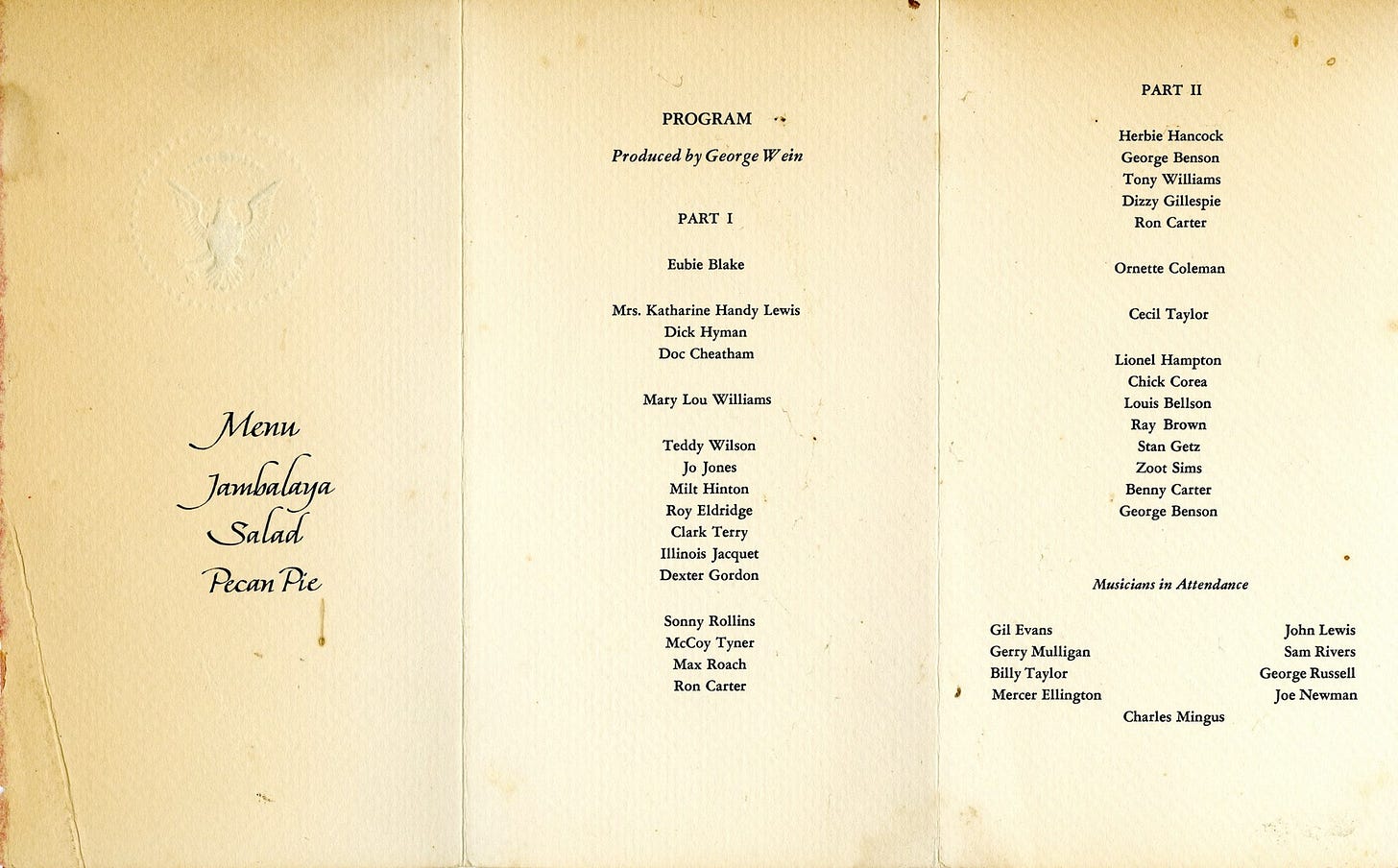


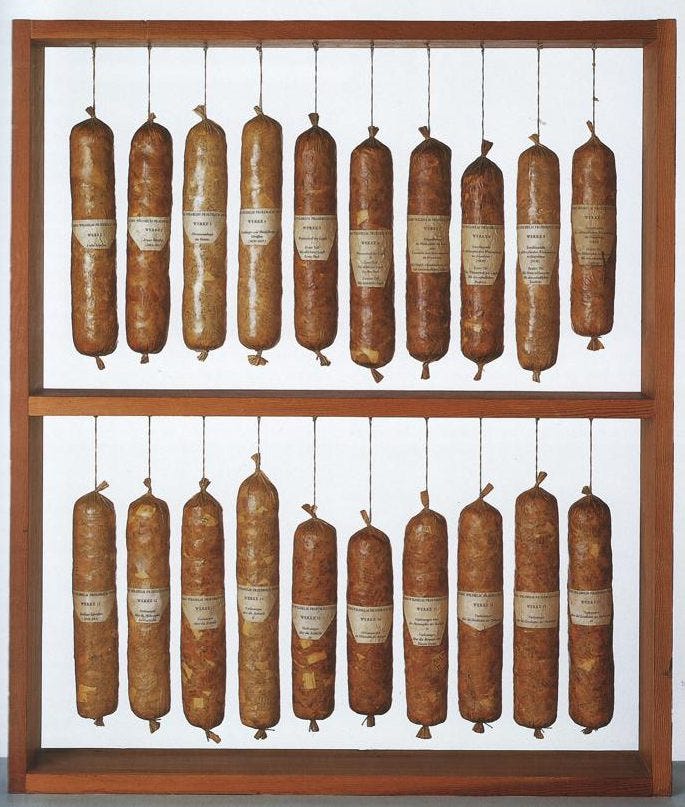


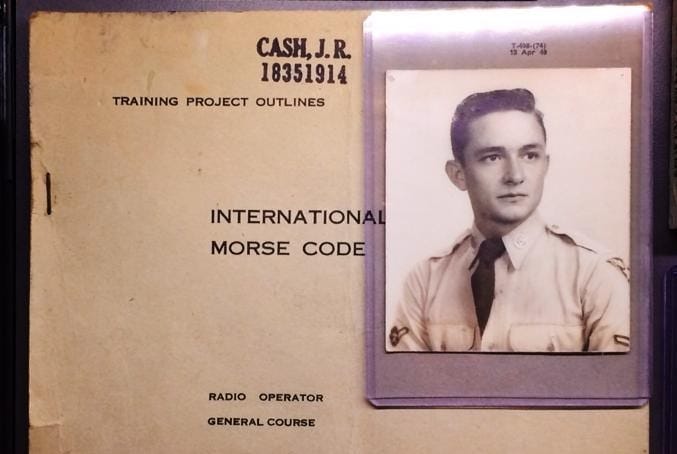

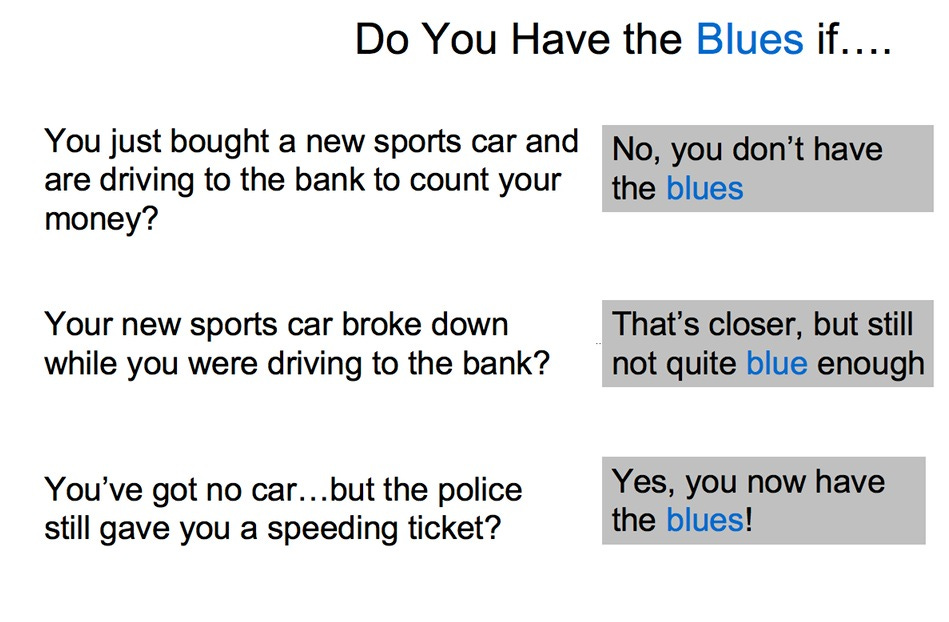

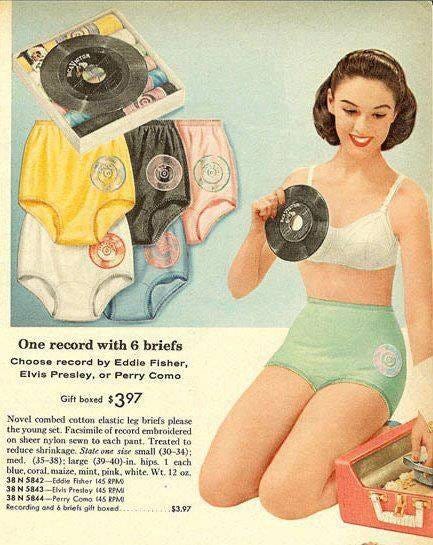
Calls to mind Martin Mull's middle class blues: https://www.youtube.com/watch?v=mhymcCYC3jk&ab_channel=MartinMull-Topic
Excellent curation and commentary as per usual, Ted. Very much appreciated.